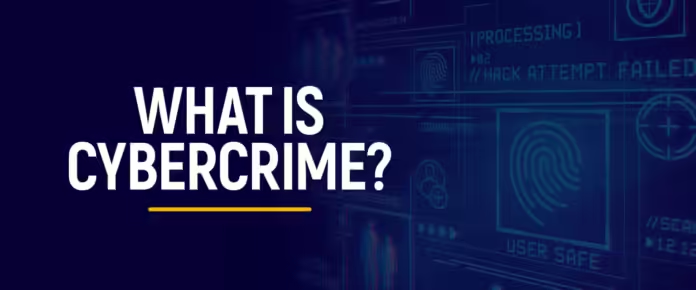What is Cybercrime?
Cybercrime refers to illegal activities performed using computers, networks, or digital devices. This includes hacking, phishing, identity theft, ransomware, and malware attacks. Cybercriminals exploit vulnerabilities in technology to harm individuals, businesses, and governments, resulting in financial loss, data breaches, and reputational damage. With technological advancements, cybercrime continues to evolve, demanding innovative strategies to counter its impact.
Types of Cybercrime
Cybercrime takes various forms, including:
- Email Scams: Fraudulent emails trick victims into sharing personal information or transferring money.
- Social Media Fraud: Scams like fake profiles, impersonation, or phishing on platforms like Facebook and Instagram.
- Banking Fraud: Targeting customers or institutions with tactics like credit card theft or online banking scams.
- eCommerce Fraud: Fake online stores or payment data theft during transactions.
- Malware & Ransomware: Malicious software disrupting systems or demanding ransom payments for encrypted data.
- Data Breaches: Unauthorized access to sensitive information like financial or personal records.
- Phishing: Fake emails or websites impersonating trusted entities to steal user credentials or sensitive data.
Impact of Cybercrime
Cybercrime inflicts massive financial and reputational damage worldwide. For instance, losses exceeded $6.9 billion in 2021, driven by ransomware, email fraud, and cryptocurrency scams. Individuals face stolen identities, drained accounts, and emotional distress, while businesses and governments grapple with compromised systems, tarnished reputations, and operational disruptions.
Preventing Cybercrime
While cyber threats continue to grow, several strategies can help individuals and organizations safeguard against them:
- Advanced Cybersecurity: Tools like firewalls, antivirus software, and AI-driven solutions.
- Multifactor Authentication (MFA): Adding layers of security to account access.
- VPNs: Encrypting online activity to shield sensitive information.
- Email Security: Using encryption and spam filters to block phishing attempts.
- Password Managers: Securely storing strong passwords to reduce risks.
- Security Awareness: Training users to recognize and avoid cyber threats.
- Data Backup: Regularly backing up critical information to recover from attacks like ransomware.
As cybercrime continues to evolve, the question “What is cybercrime?” becomes increasingly relevant in understanding its scope and risks. Vigilance, education, and the right technologies are vital in staying one step ahead of cybercriminals. Safeguarding digital assets is no longer optional but a necessity in today’s interconnected world.




